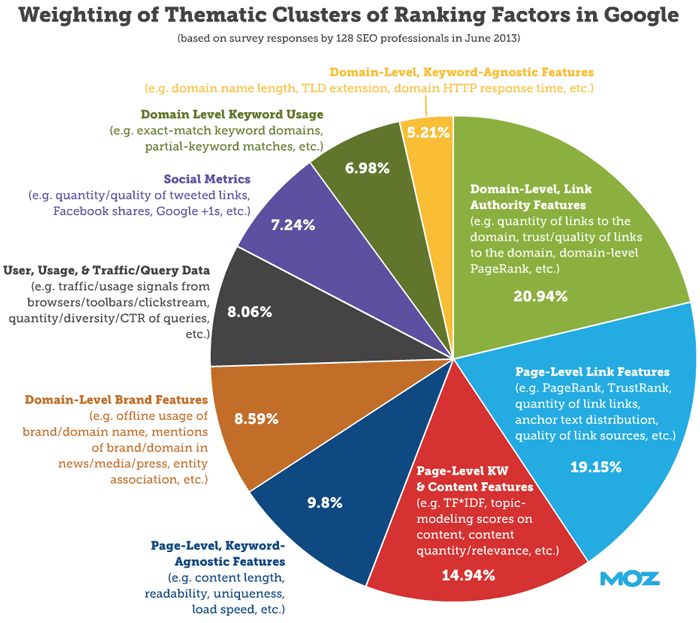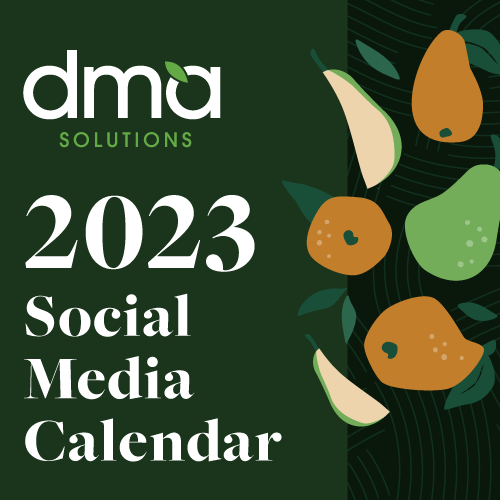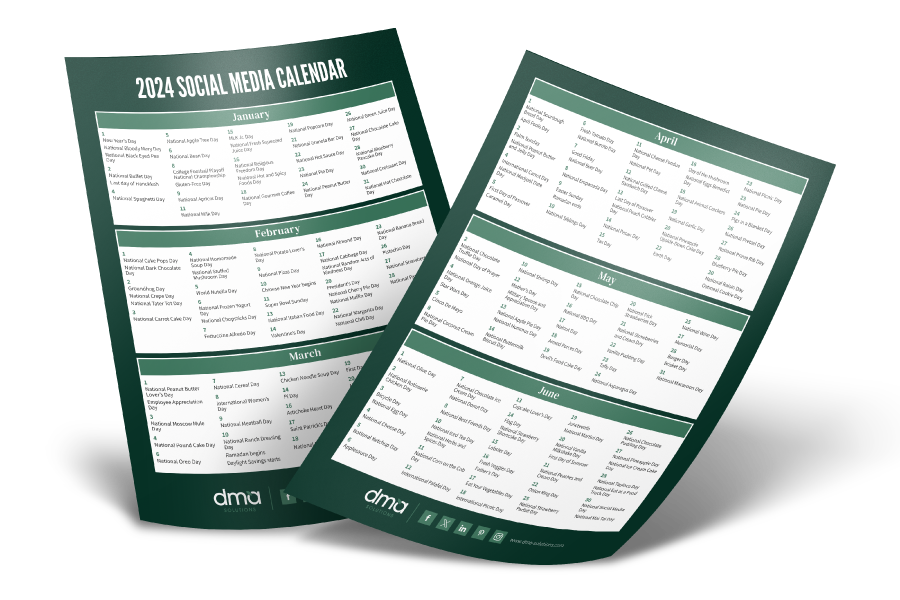When your website is visible in search engine results, it means that the potential customers or shoppers seeking your products or services are more likely to discover you. In fact, according to Google, more than 80% of shoppers do research online before making a purchase. Additionally, if your site isn’t on page one of the search results, you’re likely missing opportunities since most people don’t scroll past the first page!
Google ranks websites based on what is identified as valuable to the person looking for the information. The search engine rewards websites that have “authority” on a topic. The more authority a website has, the higher your search results rankings will be! Google determines authority based on several factors, including links, keywords, on-page factors, backlinks, and more. Moz does a great job of explaining what all of this means:
If that’s all gibberish to you, we get it. SEO can be complicated, and there are many determining factors that go into ranking your site. However, there are a few things you can do immediately that will help to lay the groundwork to get to page one of Google results.
Improve Your Website Ranking Using These 3 Steps:
Identify relevant keywords.
The first step to ranking higher on Google is to identify relevant keywords that your customers are searching for. The key is to identify words that are relevant to your business that have a high monthly search volume. The higher the monthly search volume, the more your potential customers are searching for that word.
You can do this manually and for free by using a tool like SearchVolume.io. Type in keywords that are relevant to your business and see how many people are searching for those terms monthly.
Example: let’s say you’re a grower who grows Florida oranges. We’d recommend searching for all variations of keywords. Instead of only looking for “florida oranges,” you should look for related terms, including:
-
florida oranges
-
oranges grown in florida
-
florida citrus
-
citrus in florida
-
citrus grower florida
-
citrus grower
-
florida orange grower
Update page titles and meta descriptions.
Once you’ve gotten your keywords identified, the next step is to make sure that those terms are in places on your site that Google identifies as important, such as your page titles and meta descriptions. The page title and meta description is what shows up in Google’s results:

Write descriptive page titles and meta descriptions that don’t just use the keyword, but explain what your site is about. Page titles should be shorter than 60 characters, and meta descriptions should be longer than 70 characters. Updating both of these items will need to be completed on the backend of your website. The way to do this varies depending on what content management system (CMS) you use and a developer can help you if you aren’t already familiar with making these changes.
Create backlinks to your site.
Backlinks are essentially links on your site that lead to other pages or even to other websites. You also benefit from links on other sites that lead to your website. These are very important to SEO. The more links that lead to your site, the more authority Google will say you have.
The best place to start is to examine your site and look for opportunities to link to other pages within your site. For example, on the Florida orange site mentioned above, when the words “Florida oranges” is mentioned on another page, they could create a hyperlink that leads back to the page on the site that is fully dedicated to that topic. Other opportunities for creating backlinks are press releases. Be sure you’re linking back to your site in those releases so you’re not missing valuable opportunities.
It can take a while to see results, so don’t get discouraged – keep garnering backlinks and updating your site!
If you need help getting started on SEO, or if you’re wondering how your site is performing, contact us for a website audit. Our team will take a look at your website, including Google results, and provide actionable next steps.
{{cta(‘c51e313a-a875-4361-bbd3-bea78a505011′,’justifycenter’)}}













